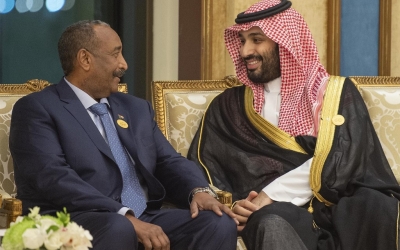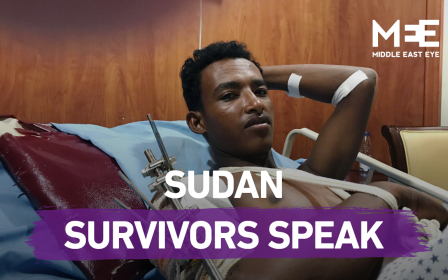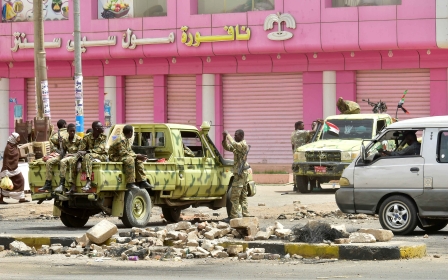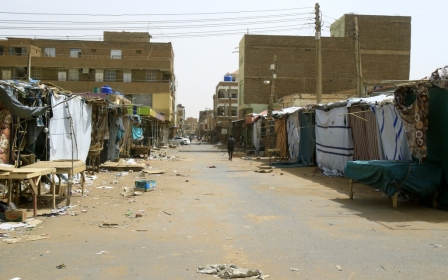Sudan: 'Near-total' internet blackout as civil disobedience continues
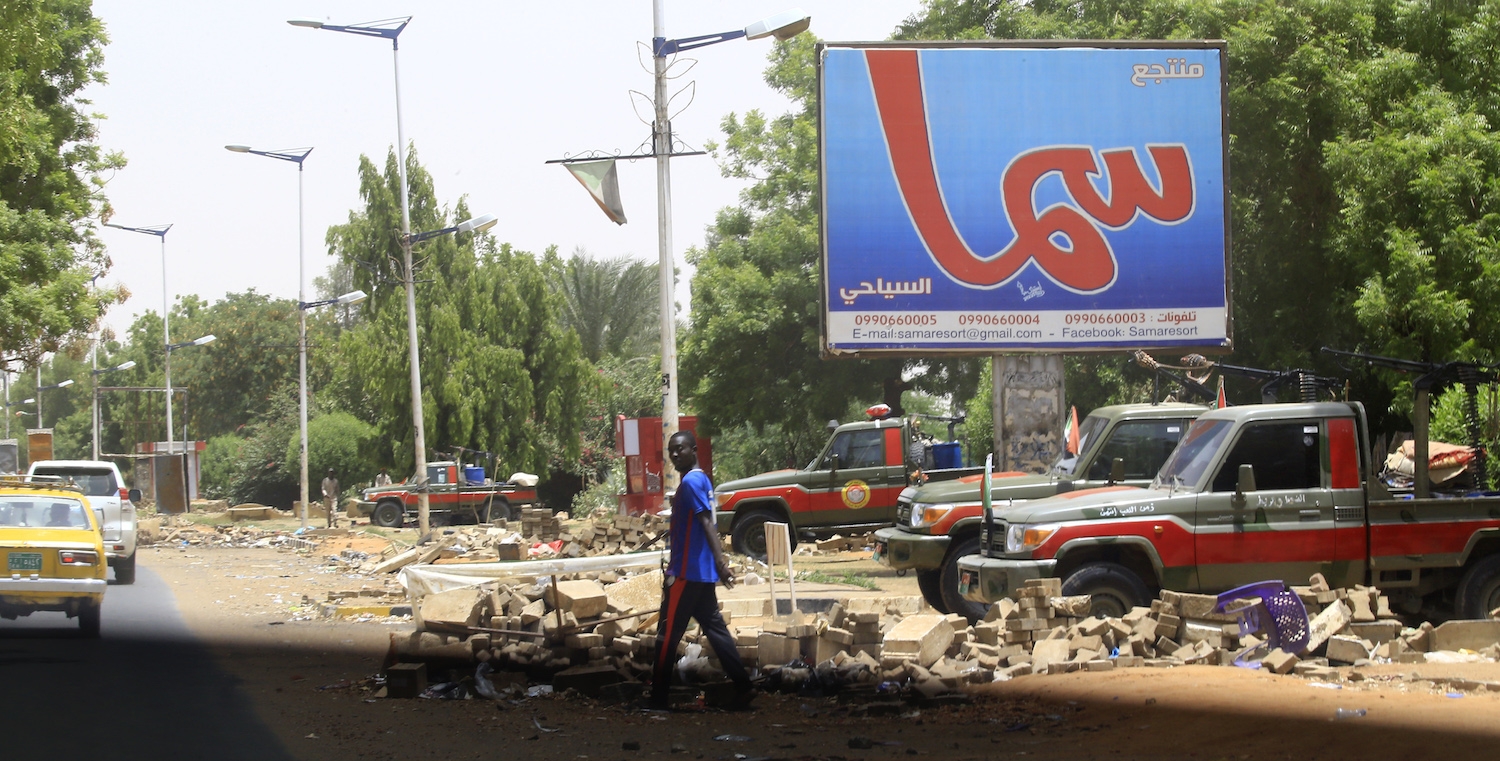
Sudan is experiencing a "near-total blackout" of internet services, a web freedom group has reported, as protesters continue a countrywide civil disobedience campaign after a deadly military crackdown that began last week.
The country's last remaining internet connections were cut around 12 pm local time (10 am GMT) on Monday, said NetBlocks Group, an independent non-profit that works on digital rights and freedoms.
Sudan Telecom's Sudani internet service was affected by the new disruption, NetBlocks said.
A spokesperson for Sudan's Transitional Military Council confirmed on Monday that it had disconnected the internet "for a limited time."
'The new disruptions represent a near-total blackout of connectivity for the majority of citizens'
- NetBlocks, digital rights group
MEE could not independently verify the group's report.
New MEE newsletter: Jerusalem Dispatch
Sign up to get the latest insights and analysis on Israel-Palestine, alongside Turkey Unpacked and other MEE newsletters
But NetBlocks' findings come after opposition activists reported internet connectivity issues in Sudan after a military crackdown on protesters left more than 100 people dead and many others injured in the capital Khartoum last week.
It also follows the loss of service on Canar Telecom and Mobiltel Zain networks earlier this month, NetBlocks said.
"The new disruptions represent a near-total blackout of connectivity for the majority of citizens," the group said on Monday.
NetBlocks added that the recent internet-service disruptions in Sudan "are now more severe" than those imposed under the country's longtime president Omar al-Bashir, who was ousted in a military coup in April.
The TMC, which succeeded Bashir, violently broke up an opposition sit-in demanding civilian rule across from the army headquarters in Khartoum on 3 June.
Eyewitnesses in the capital reported seeing bodies being thrown into the Nile River as the crackdown continued.
The military on Monday announced the arrest of several members of Sudan's regular security forces linked to the violent assault on the protesters, AFP reported, citing a statement carried by state news agency SUNA.
The TMC said the arrests were the result of an investigation into last week's crackdown.
The individuals arrested would face justice as soon as possible, the statement said, without specifying their number, rank or what charges they would face.
Civil disobedience
Also on Monday, the Sudanese opposition held the second day of a nationwide civil disobedience campaign, aiming to pressure the country's military to hand power over to a civilian-led interim body.
Most parts of the capital remained closed as shopkeepers, traders and employees opted to remain indoors, an AFP correspondent reported.
Several shops, fuel stations and some branches of private banks were open, however, while public buses were also ferrying passengers and more vehicles and people were seen than the previous day, the correspondent said.
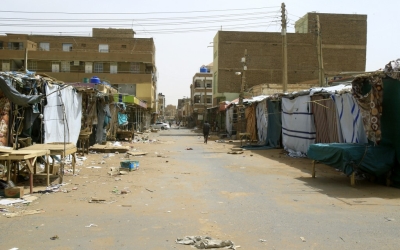
The TMC took over after Bashir was deposed following months of popular protests calling for his resignation.
Late last week, Ethiopian Prime Minister Abiy Ahmed flew to Khartoum in an attempt to mediate between Sudan's military and opposition leaders.
"The army, the people and political forces have to act with courage and responsibility by taking quick steps towards a democratic and consensual transitional period," Abiy said in a statement on Friday, as reported by AFP.
Opposition leaders have put forward a list of demands before they will agree to return to negotiations with the army over the country's political transition.
Among their demands, they have called for the military to take responsibility for the deadly crackdown in Khartoum, and agree to an independent probe into the killings.
US sending diplomat to Sudan
A leader in the alliance of Sudanese opposition and protest groups told Reuters on Monday that the opposition plans to nominate eight members to a transitional council to lead the country, as well as a prominent economist to head a government.
The plan appears to build on a proposal made by the Ethiopian premier during his mediation visit to Khartoum last week, the news agency said, without divulging the identity of the opposition leader.
The leader said the opposition Freedom and Change alliance planned to nominate Abdullah Hamdouk, a former executive secretary of the United Nations Economic Commission for Africa, as new prime minister, Reuters reported.
Meanwhile, the US State Department on Monday said it plans to send its top diplomat to Sudan this week to urge talks between the TMC and opposition leaders.
Tibor Nagy, the assistant secretary for African affairs, "will call for a cessation of attacks against civilians and urge parties to work toward creating an enabling environment ... for talks to resume", the department said in a statement.
Nagy will also travel to Ethiopia to meet with government officials and African Union (AU) representatives to "discuss the situation in Sudan and efforts to support a political solution".
The AU last week suspended Sudan's membership in the organisation after the bloody crackdown on the Khartoum sit-in.
Middle East Eye delivers independent and unrivalled coverage and analysis of the Middle East, North Africa and beyond. To learn more about republishing this content and the associated fees, please fill out this form. More about MEE can be found here.


